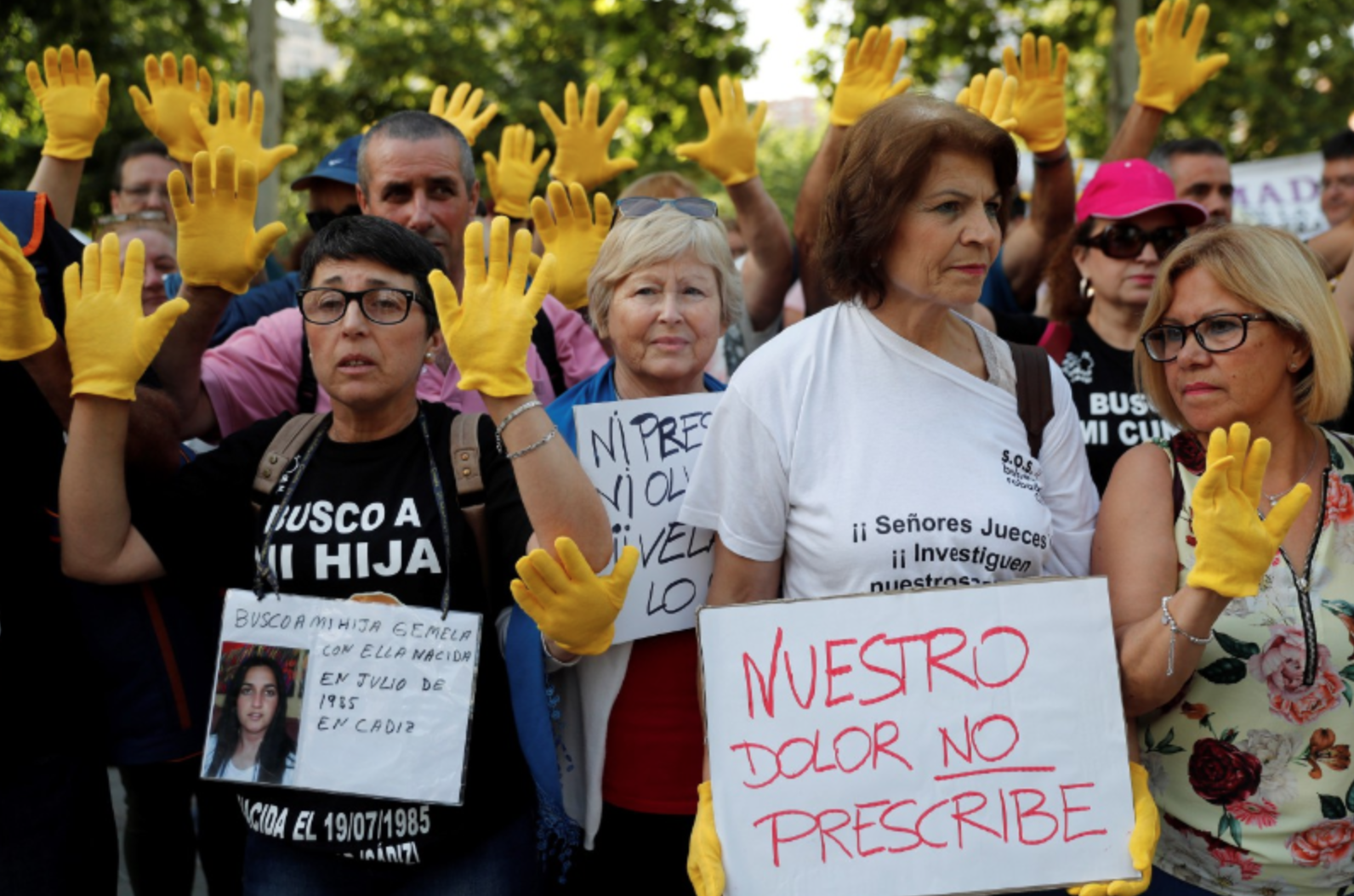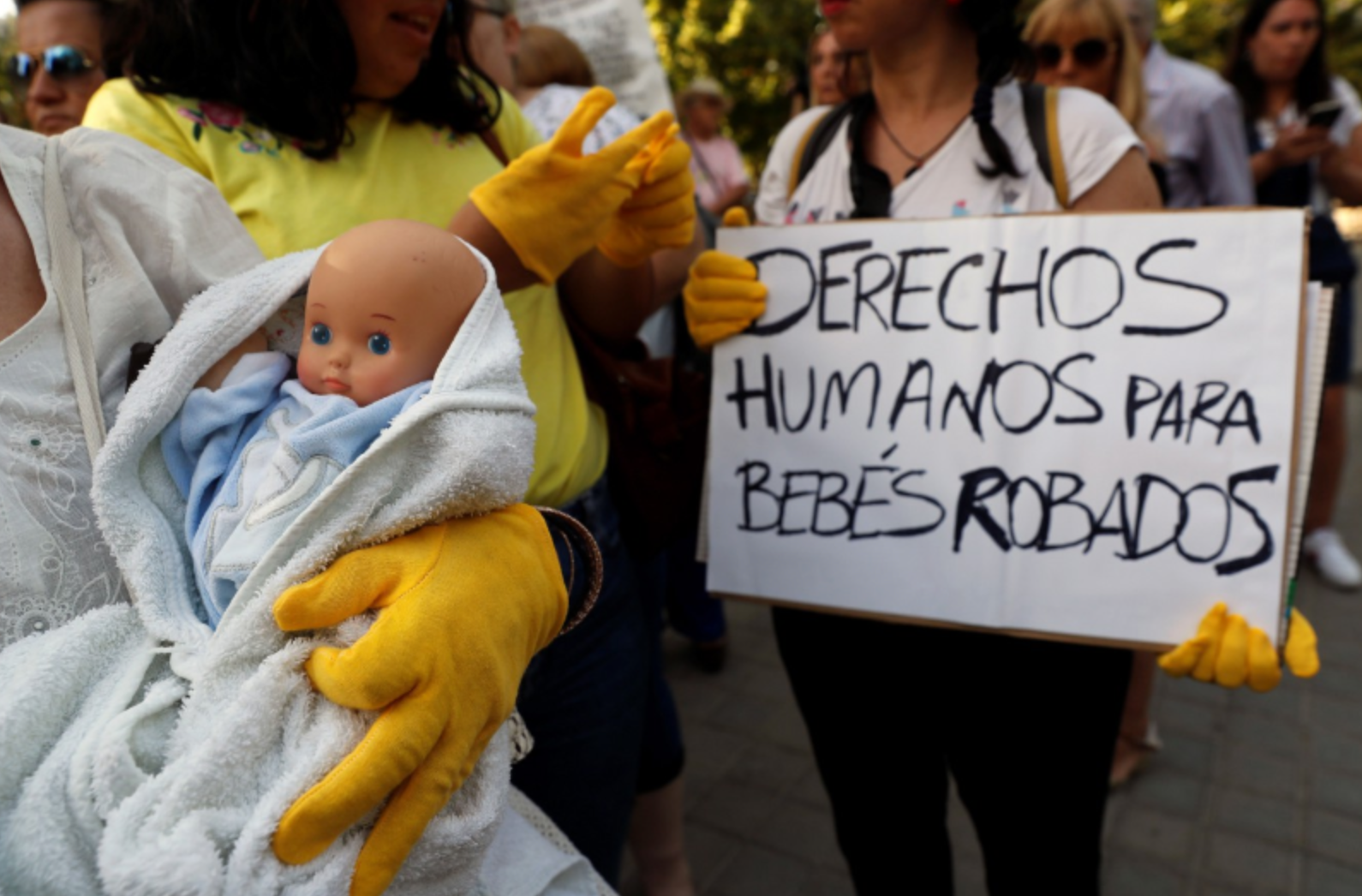Gynaecologist becomes first person on trial for Franco-era 'stolen baby' scandal that affected thousands
Eduardo Vela is accused of falsifying documents, abducting a child under seven years old and faking a birth

Your support helps us to tell the story
From reproductive rights to climate change to Big Tech, The Independent is on the ground when the story is developing. Whether it's investigating the financials of Elon Musk's pro-Trump PAC or producing our latest documentary, 'The A Word', which shines a light on the American women fighting for reproductive rights, we know how important it is to parse out the facts from the messaging.
At such a critical moment in US history, we need reporters on the ground. Your donation allows us to keep sending journalists to speak to both sides of the story.
The Independent is trusted by Americans across the entire political spectrum. And unlike many other quality news outlets, we choose not to lock Americans out of our reporting and analysis with paywalls. We believe quality journalism should be available to everyone, paid for by those who can afford it.
Your support makes all the difference.An 85-year-old Spanish gynaecologist went on trial accused of abducting a baby in 1969 and giving her away.
The doctor, Eduardo Vela, is the first person prosecuted for the “stolen babies” scandal that affected thousands during General Francisco Franco’s rule.
Activists wearing yellow T-shirts and chanting “We want justice!” protested outside the Madrid court demanding the reopening of other cases, many dating back to the right wing dictatorship of 1939 to 1975.
Campaigners say officials took babies from “unsuitable” mothers – often communists or leftists – and gave them to families connected to the regime. They claim it continued, after Franco’s death, into the 1980s.
Eduardo Vela is accused of falsifying documents, abducting a child under seven years old and faking a birth while he worked at the San Ramon hospital in Madrid, now closed. He denies any wrongdoing.
Bringing the charge is Ines Madrigal, who accused Vela of forging her 1969 birth certificate to show her adoptive mother, now dead, as her biological parent.
Ms Madrigal, who was told by her mother at 18 that she was adopted, became suspicious about her background after reading a newspaper article about stolen babies around eight years ago, she said.
“It made the hair on my arms stand up like spikes,” she said.
Vela, who is frail and struggled to hear the questions put to him in court, denied handing over the baby, and denied that the signature on Ms Madrigal’s birth certificate was his.
“I never gave any baby to anyone,” he said.

A decade ago, Spanish judge Baltasar Garzon recorded the cases of about 30,000 Spanish children taken at birth during Franco’s rule. Mr Garzon was barred from the bench in 2012 for illegal wiretapping and no longer practises as a judge in Spain.
The cases echo events that took place during the 1976-1983 military dictatorship in Argentina, where courts have since handed out lengthy jail terms for the systematic theft of babies from political prisoners.
Activists say hundreds of similar cases have failed to make it to court in Spain because of a lack of evidence or because the time limit to file a charge has passed.
Reuters
Join our commenting forum
Join thought-provoking conversations, follow other Independent readers and see their replies
Comments